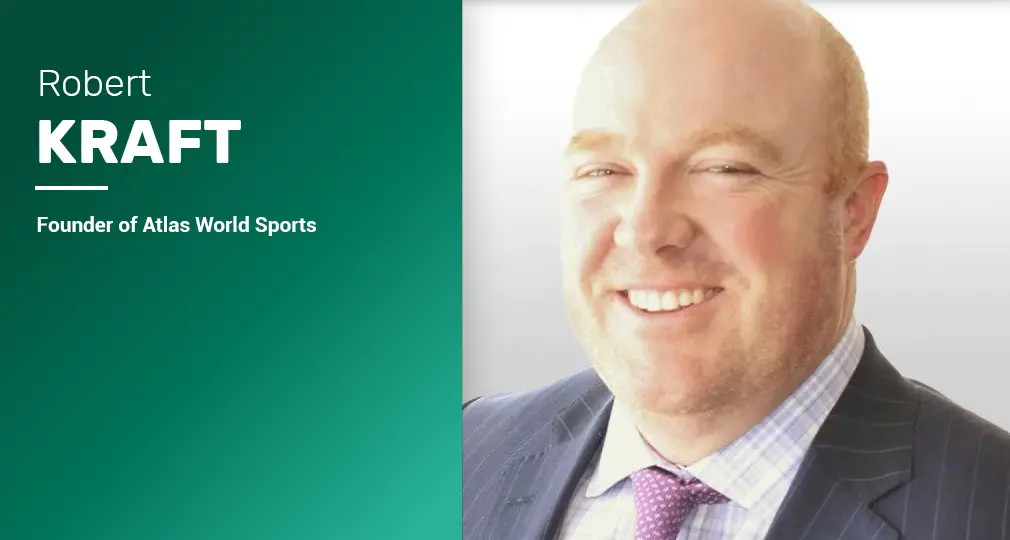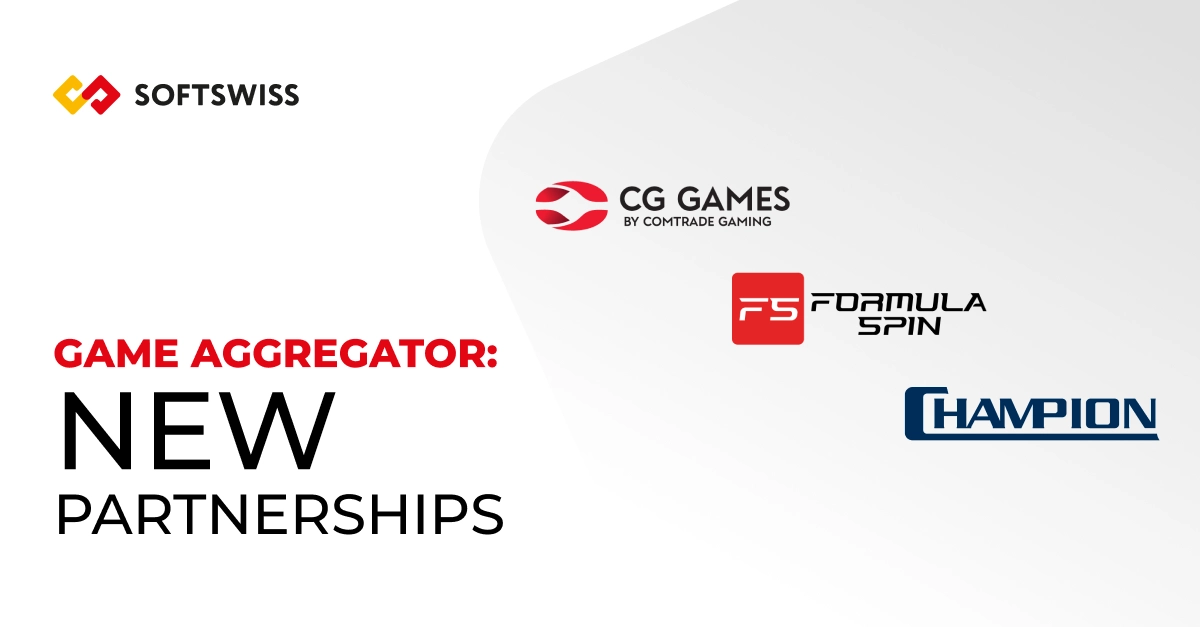According to the news about the bookmaking industry of the United States, the American market is growing at a fast pace. And marketing of betting products remains an important issue, which is yet to be tackled.
Robert Kraft, a founder of Atlas World Sports and an expert with almost 20 years of experience in direct marketing, has spoken about the peculiarities of sportsbook advertising in the US. The expert has also shared his vision on the preferences of American bettors, talked about the upcoming trends in the sports betting industry.
How does marketing in the online betting vertical of the US differ from marketing in the other industries?
I think the biggest challenge is understanding the regulatory framework. Advertisers want to drive traffic to all of the major betting companies. But it’s important to understand how we can market within, say, Facebook, Google, or Twitter, and make sure we are using appropriate language, respecting the fact that you have to be 21 years to legally bet in the United States; as well as, in certain states, sports betting is not legal yet. (Now, almost half of the states are legal and operational, and over the next few years, that will occur significantly more.) For now, that is probably the biggest difference from the marketing background in general, in which I’ve been my whole career. If you, say, wanted to market for a manufacturing company or some type of consumer products company, or any kind of consumer goods, you could just market it no matter what. And you didn’t have to think responsibly the same way. And the social impact of understanding the consumer is also important.
What are the biggest challenges that advertisers face when complying with the gambling laws of the US?
It becomes much more difficult and stringent for the tier-ones, which would be the sportsbooks. We as marketing and affiliate marketing companies are at a tier-two level. Not only we’re not transacting money to the sportsbooks, but we are also not an actual sportsbook or bookmaker itself. So, for us, it’s easier. But we have to respect the framework that we need to market the sportsbooks in and the way it should be done within their businesses. If we marketing a betting operator, we need to make sure we’re doing it respectfully and appropriately and within their tier-one guidebook.
Which type of content, maybe, video, podcasts, or live streams, helps to gain maximum retention in the US betting market?
That’s a good question. But we’re such a nascent marketplace. It’s just getting going in the United States. It was only a May of 2018 that the US Supreme Court overruled the fact that states outside of Nevada would not be able to have sportsbooks. So, as a result of that, we’re only really three years into this market. While, for example, England, Ireland, and most of the EU have been very mature, they’ve been going for twenty years or so.
So, for us to sit here and say that this works better than that, video works better than podcasts or anything, is a great question but we actually would love to know the answer to it as well. Currently, we’re doing a lot of AB testing: we’re testing this versus that and getting the feedback. And then we’re can say that Instagram works better for American football, but other social medial platforms and types of content work better for other sports. There are more fans of tennis, American tennis, or global tennis, for that matter, on Facebook, and they might enjoy reading stories. But for American football, the fans just want to see the stats and big hits from last weekend on Instagram. So, we’re doing a significant amount of AB testing in different categories and trying to build almost an algorithm, if you will, of our marketing right now. So, we’re just starting to roll that out as we speak.
What about signing live streamers as affiliates? Is this an effective marketing technique in the bookmaking sector of the United States?
Live streaming might be the bigger avenue in Europe and the CIS than it is in America. And, once again, we’re still just getting our feet wet in all of this. It’s all new and exciting. Plus, the pandemic slowed everything down.
If speaking about the preferences of the American bettors, which kinds of sports they’re more interested in?
American football is huge. And to say that is probably an understatement. 70% of the United States sports betting market is tied to either NFL football or NCWA college football. So that’s massive. And right now, it is 80 to 85% male. But I believe that the market will mature in the next 3 to 5 years, and women are going to come in a significant way. In the United States, it happened in fantasy sports. When people’s girlfriends, or wives, or sisters, or whatever would say: “What are you, guys doing over there?”. And the men would answer: “Don’t worry about it, we’re playing fantasy football. It’s for guys only.” And then girls started getting their own leagues, or somebody’s girlfriend would get into the league. And now from 100% male-dominated sport, it became like 60% to 40%. But it’s a significant difference. I think that American football in the US will become 50% to 50%.
Sports betting to me is so much easier than trying to figure out how to do fantasy sports. I know that all I have to do is sit, watch the game, and I just put down $20 and if my team wins, I win money. I can figure that out, I just have to watch the scoreboard. Versus, in fantasy sports, you have to figure out who your quarterback is, who your kicker is. It’s very complex. So, I think, for women and men, in general, sports betting is going to be a growing market. I’ve already seen that even men that were intimidated by wagering on sports in America were going, like: “Oh, it’s that easy? I can just pull up my cell phone and hop on a sportsbook site.” Versus before, they had to do it illegally at some pizza place, talking to the manager, whatever.
So, right now the American football dominates the market, but all these other sports are going to open up a lot.
Esports is an interesting question. We see it as something that’s going to be interesting a couple of years down the road. But right now, the industry is physical and real lifetime sports dominated and it’s such a huge market in the United States.
Could you give some tips for the operators that would like to enter the US betting market?
I think they’re in a great time if they want to come to the US market. I’m sure you’ve heard about our cowboys in America, our Wild Wild West: our history from 100 years ago when the cowboys were going across the open lands. That is the best metaphor I could use to describe what it’s like in sports betting in the United States. It’s a little bit of a Wild Wild West. Where if you want to start, just go to, say, Colorado, or Denver, or Arizona, or Chicago, and just understand that state’s landscape. And I think somebody can go out from there. It is also good to partner with a local advertising agency.
What is your opinion on the US sportsbooks recruiting influencers as brand ambassadors?
We as an advertiser are very bullish on brand ambassadors and influencers. We like them a lot, especially athletes. Current athletes are the best, but former athletes that were big-time celebrities are also really good. In America, the sportsbooks are already signing up some of these big guys. Shaquille O’Neal, who you might know as a big giant basketball player, who is 7 feet tall, is now a brand ambassador for a bookmaking company, as well as an actor Jaimie Foxx. And there are all kinds of other athletes.
Right now, we’re looking at big leagues in America: Major League Baseball, National Basketball Association, National Football League, National Hockey League. And as Canada has legalized sports betting as well, we might try to grab a Canadian professional hockey player. But we believe that influencers are a good one right now. Because the platforms that some of these guys have are half a million followers. If they make a post about a sportsbook, their fans will go to check it out.
What are the tricky parts of working with sportsbook operators?
Probably, the best thing is that they’re very entrepreneurial right now in America. What we’ve seen as the biggest challenge that slows things down for them is that the industry has grown so quickly that there’s not enough talent in the market, especially the experts that specialize in sports betting. So, the bookmaking companies are trying to hire and teach people how to be sportsbook operators’, and these people may be coming from different industries. And that’s not to talk about the labor shortage that’s going on as well. That’s just, actually, the industry shortage, which occurred because there has been explosive growth.
Recently, I was talking to a lot of bookmaking ops and asking them what’s their biggest problem. They told me that they can’t hire people and train them fast enough to go run their sportsbook in, say, the city of Indiana, or the state of Illinois, or the state of Iowa, or now Florida. So, you’ve got to have the experts that know how to run a bookmaking business. That’s why it has been kind of slow for some of these betting ops to get online. And we as advertisers see that that’s tough for those guys to kind of do business with us right off the bat. They just don’t know; they’re just learning right now.
Could you tell our readers about some trends in sportsbook marketing that are going to be emerging in 2022?
I think there’s going to be explosive growth. And to dovetail on the comments I’ve made before when the industry can’t find enough people to work that actually understand the industry, it’s a problem. But it’s a really good problem to have. This is a problem where we all win. So, for us in America, for the global industry, it’s going to be really good, because we see strong growth over the next three to five years.
The giant sportsbooks, what was William Hill, now Caesars, FanDuel, DraftKings, Paddy Power, all those guys they’re huge. They are the big giant barges in the ocean. And advertisers are like the little dingy that’s going to go between all these barges and just share information and leads, and potential bettors, and all that stuff to players. But the water level is going to keep going up. So, that’s going to be good for all of us because we all are going to be rising.
From a trend standpoint, I see that in 2022 and beyond there are going to be so many incentives these sportsbooks are going to have to put out to find new players, to make sure that that player stays with them. So, if advertisers are going to help these players to shop the line, they are going to give the information about every legal sportsbook the customers can bet through in their state, whatever state they are in.
But if Caesars is showing the same line as the DraftKings is, why do I to the DraftKings instead of Caesars? Probably, the differentiating factor is going to become massive marketing incentives, such as loyalty. We anticipate hotel deals and credit card deals coming in, airlines are going to get involved in this stuff as well.
There are going to be so many nice incentives that people can build up their loyalty accounts. So, when they want to go to Las Vegas, the bookmakers are going to help get the next trip for them, their family, their friends, or whatever. For example, if I’m going to make my picks through Caesars when the same odds were displayed at DraftKings, that might be because Caesars said: “Hey, Mr. Kraft, we’re going to comp you a nice weekend stay when you get 10 thousand points, or whatever it is, from betting. And we’ll do a deal with American Airline, or United, or Lufthansa, or whomever it might be.” These airlines are going to try it because they need people traveling to the massive tourist areas, like Las Vegas or Macau. And maybe Malta becomes one, or the Middle East and Dubai, potentially.
So, what we really see coming in 2022, and especially in 2023 when the market really starts to get a good foothold of their business landscape, will be a significant number of incentives from marketing and loyalty-types of opportunities.
Read more: Betting Affiliate Programs














